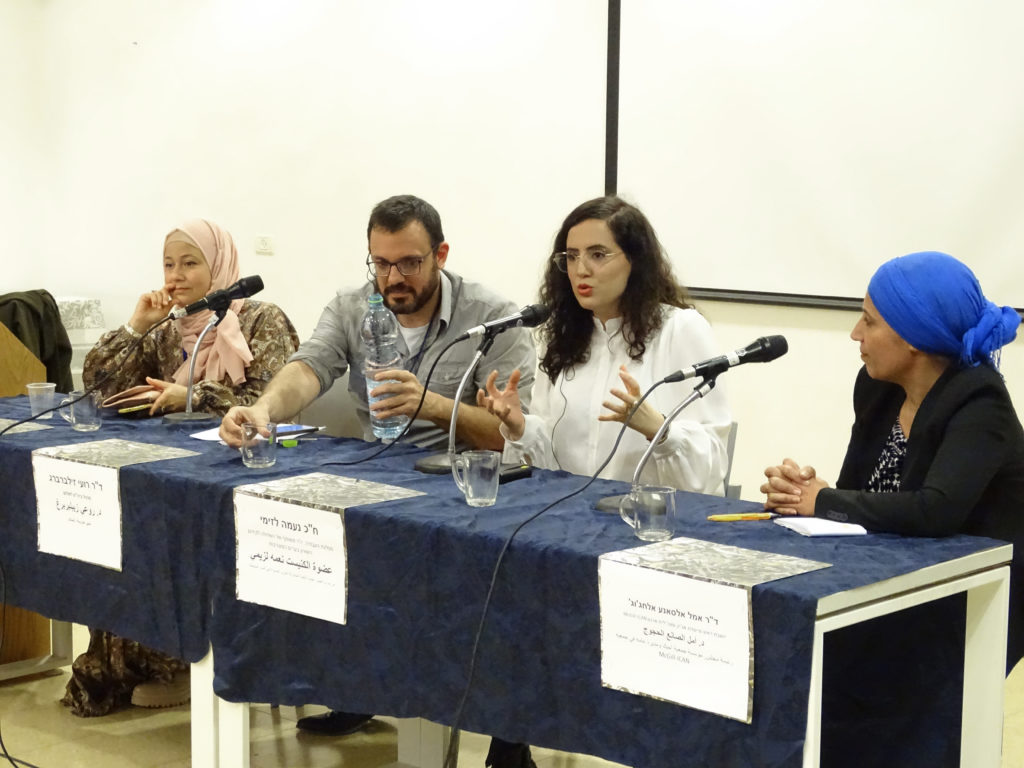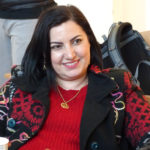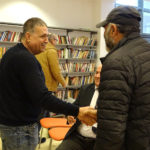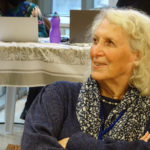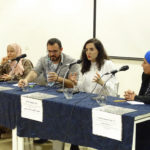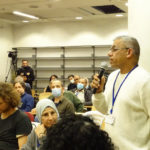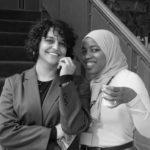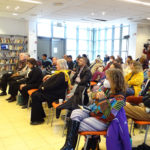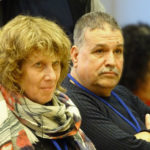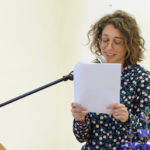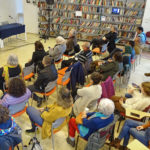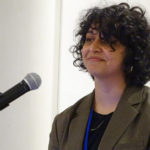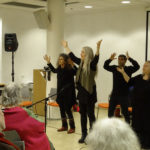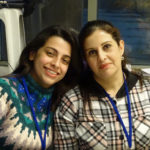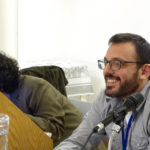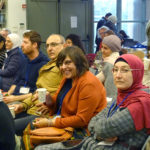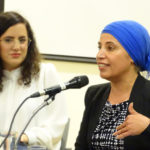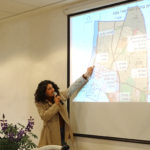Inaugural Conference for SFP Graduates: Separation versus Partnership in Activism
The first-ever conference of School for Peace Course Graduates | Activism: Separation versus Partnership | March 3-4, 2022
Early in March of this year we convened the first conference of SFP course graduates, addressing the matter of “Activism: Separation versus Partnership.” Fascinating, challenging, and meaningful, the event was successful beyond our expectations.
Some 120 people attended, all graduates of various School for Peace courses over the years.
Gathering with this group of women and men from different fields generated a special kind of good feeling. All the alums brought with them the knowledge gained at one or more School for Peace training courses, plus a shared desire to transform our reality toward one of greater equality and justice.
The conference theme of “Activism: Separation versus partnership” was woven into all the lectures, workshops, and dialogue circles. The theme had a real presence in the dining room, too, and was palpable in the atmosphere of the unique playback theater event.
We all have an interest in partnership as the basis for our work using the School for Peace methodology. Yet, given the conditions of urgency permeating today’s reality, partnership flows less readily and involves complicated dilemmas. Thus sometimes we choose action in partnership with all its complexity, and sometimes we choose to act separately. And in any case, we always choose to look complexity squarely in the eye. We put the tough questions on the table and consider deeply and honestly where we stand – each of us within ourselves, both national groups internally, and the two groups together. Only that way can the partnership be authentic and meaningful.
The main conference theme sparked additional discussions around it: questions of despair and hope, the relief on entering into a bi-national or uni-national dialogue, and the difficulty of leaving that environment to return to the harsh reality outside.
We also talked about the events of May 2021 and the impact of extreme events on our partnership and our spirit.
Yes, Jewish-Palestinian partnership is complicated and not always comfortable. But from our standpoint, this is the way to change our reality into one that is good for everyone. This is the source of our power and our hope.
Complicated moments notwithstanding, we were glad to be gathering as one community, seeing one another and being seen as equals, talking, deliberating and sometimes even laughing together.
We are already looking ahead impatiently to next year’s conference!
➡️ Read about the projects that won School for Peace stipends
➡️ Watch the conference videos here (Hebrew/Arabic only):
- Opening session with Dr. Amal Elsana Alh’jooj and Naama Lezimi: Original languages | Hebrew | Arabic
- Closing session including presentation of the projects that won graduate project stipends: Original languages | Hebrew | Arabic
What the attendees said about the conference:
“It was fun to be with people from the different courses I participated in and to encounter all this power. I felt that it strengthened the community and showed that our voice is important. My feeling was that there is hope for our message to reach others and that we will succeed in making change happen.”
“It was useful on the personal level. After the conference ended, I was on a high for two days. An important event.”
“At the concluding session, the graduates presented the projects they are working on. These were so original and important, and they brought home to me what we must do in order to create change.”
Photos:
Conference program:
Thursday, March 3, 2022
16:00-17:00 – Arrival and room assignments
17:00 – 17:30 – Greetings and opening remarks | Rita Boulos, Chair, Neve Shalom Village Association; Dr. Ariela Bairey Ben Ishay, Chair, Association of Educational Institutions of Neve Shalom; Dr. Roi Silberberg, Director, School for Peace.
17:30 – 19:00 – Festive opening session: “Separation versus partnership in activism.”
Speakers:
- Naama Lazimi, Labor Party, Co-Chair of the Association for the Advancement of Equality in Mixed Cities
- Amal Elsana Alh’jooj, Chair and founder, AJEEC, and CEO of ICAN-McGill
19:00 – 20:00 – Dinner
29:00 – 21:00 – Playback Theater “Galilee Combinations,” presenting the stories of displaced residents of At-Tur. The Playback Theater performance pays tribute to graduates of the School for Peace at Neve Shalom, what was and what is, with a shared look at memories and experiences.
Friday, March 4, 2022
9:00-10:30 – Meeting one another | We will divide into four binational groups led by SFP facilitators, get to know one another personally, and talk about the role of the graduates’ network and the challenges of activism.
10:30 – 11:00 – Break
11:00 – 12:30 – Concurrent sessions: Discussion and dialogue
- Jewish uni-national: Military service | Facilitators: Tal Kulka and Bela Sosovski
Speakers: Yariv Oppenheimer, leftist activist, former CEO, General Secretary and Spokesperson for Peace Now and currently a board member, and Or Ben David, draft resister, Mizrahi feminist activist and coordinator of the refuser solidarity network at New Profile.
- Palestinian uni-national: Daily violence in Arab society | Facilitators: Maya Rabia and Ghada Shbita Arafat
Speaker: Samah Salaime, Director of Communications, Wahat al Salam ~ Neve Shalom, feminist activist
- Binational: About May 2021 – Extreme events against a backdrop of persistent ongoing collective intergenerational trauma | Facilitators: Tova Buchsbaum and Harb Amara
Speakers: Dr. Muna Karkabi-Salameh, clinical psychologist, counselor and graduate of the SFP Course for Facilitators of Groups in Conflict, and editorial board member at Crossings—a Journal of Psycho-Political and Cultural Thought; and Tova Buchsbaum, senior clinical psychologist and psychoactivist, graduate of the first SFP Change Agents Course for Mental Health Professionals, editorial board member at Crossings—a Journal of Psycho-Political and Cultural Thought.
- Binational: Partnership as a tool in the struggle: Normalization or taking responsibility for changing the reality? | Facilitators: Shireen Najjar and Dr. Noa Barkai-Kara
Speakers: Yuli Novak, political activist, author of the book “Mi at bichlal” (“Who are you anyway”), former CEO, Breaking the Silence
12:30 – 13:00 – Break
13:00 – 14:30 – Presentation of the projects awarded School for Peace stipends; conference conclusion
14:30 – Lunch

